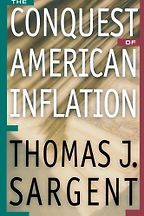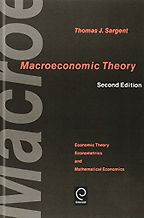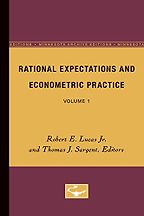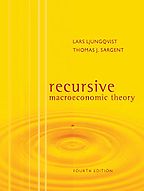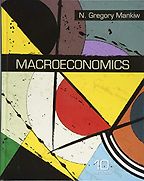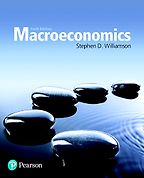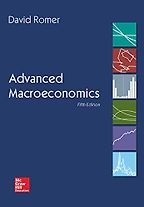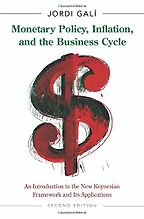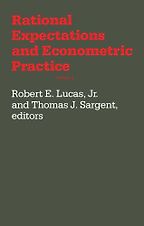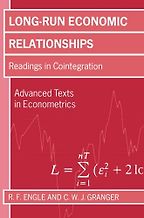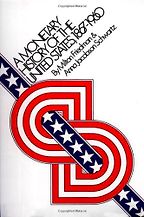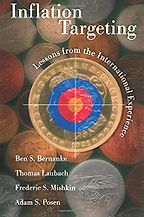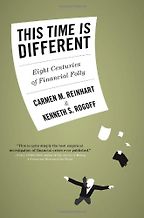Books by Thomas J. Sargent
Rational Expectations and Inflation
by Thomas J. Sargent
This book contains a chapter with Thomas Sargent's Nobel Prize lecture, delivered on 8 December 2011 at Aula Magna, Stockholm University. You can also read it as a PDF here or watch it here.
“It’s a nice book, but it has a lot of critics. Many scholars think that the conventional narrative is not wrong. However, I think it’s an interesting exercise. And it’s out-of-the-box thinking because most of the people think that the reason, why from the 1980s to 2008, we had this big period in which there was inflation stabilisation is due to the fact that monetary policy was very successful. He claims that, no, it’s just a coincidence. It’s interesting, but it’s difficult to read.” Read more...
Federica Romei, Economist
Macroeconomic Theory
by Thomas J. Sargent
Sargent brings a brand new technology to the literature that opens up a lot of questions you couldn’t ask before
Rational Expectations and Econometric Practice (Volume 1)
Robert E Lucas Jr and Thomas J Sargent (editors)
These are the books I used when I first came out of grad school and was trying to get tenure as a young assistant professor
“This is the textbook I use in my PhD macro courses. In fact, it’s used in almost all of the major PhD programmes in the US right now – any respectable programme most likely uses this book. It’s a book of tools and techniques to solve what are called recursive macroeconomic models. Modern macroeconomics uses DSGE models – dynamic stochastic general equilibrium models. That’s a bit of a mouthful, but all dynamic means is that it’s a model which explains how things move through time. So it explains what GDP will be today, tomorrow, the next day and the day after that, and how it might change if the government does different things or if certain things happen in the economy. It’s really a model of how the economy transitions from one point to the next – how it goes into recessions et cetera. Those models are extraordinarily difficult to solve. What this book shows us – and this is the recursive part in the title – is a way of breaking down this really hard problem into little tiny pieces. You can actually solve a much simpler problem when you only have to look at how the economy moves from today to tomorrow. I don’t have to look at how it moves from tomorrow to the next day and all the way out as far as I can see. We can break down these really hard problems into a recursion between today and tomorrow.” Read more...
The best books on Econometrics
Mark Thoma, Economist
Interviews where books by Thomas J. Sargent were recommended
-

1
Macroeconomics
by Greg Mankiw -

2
Macroeconomics
by Stephen Williamson -

3
Advanced Macroeconomics
by David Romer -

4
Monetary Policy, Inflation, and the Business Cycle: An Introduction to the New Keynesian Framework and its Applications
by Jordi Gali -

5
Recursive Macroeconomic Theory
by Lars Ljungqvist & Thomas J. Sargent
The Best Macroeconomics Textbooks, recommended by Raffaele Rossi
The Best Macroeconomics Textbooks, recommended by Raffaele Rossi
In its study of the broader economy, macroeconomics is a vital tool for understanding the world around us, offering insights into issues that affect us all, like inflation and unemployment. Which textbooks to read to learn more about it? Here, Raffaele Rossi, Senior Lecturer at the University of Manchester, recommends his top macroeconomics textbooks, starting with entry-level books aimed at undergraduates all the way through to the tough tomes you’ll need to plough through if you’re doing a doctorate and want to work at the frontier of the discipline.
-

1
Recursive Macroeconomic Theory
by Lars Ljungqvist & Thomas J. Sargent -

2
Rational Expectations and Econometric Practice (Volume 1)
Robert E Lucas Jr and Thomas J Sargent (editors) -

3
Rational Expectations and Econometric Practice (Volume 2)
by Robert E Lucas Jr and Thomas J Sargent (editors) -

4
Long-Run Economic Relationships
by RF Engle and CWJ Granger -

5
Macroeconomic Theory
by Thomas J. Sargent
The best books on Econometrics, recommended by Mark Thoma
The best books on Econometrics, recommended by Mark Thoma
It’s a discipline in vogue with the Nobel prize committee and mysterious to most of the rest of us. So we asked econometrician Mark Thoma to explain what he does, and why there’s such a battle of ideas (and models) in economics. He recommends his favourite econometrics books.
-

1
Monetary Policy, Inflation, and the Business Cycle: An Introduction to the New Keynesian Framework and its Applications
by Jordi Gali -

2
A Monetary History of the United States, 1867-1960
by Anna Schwartz & Milton Friedman -

3
Inflation Targeting: Lessons from the International Experience
by Adam S. Posen, Ben Bernanke, Frederic S. Mishkin & Thomas Laubach -

4
A Monetary and Fiscal History of Latin America, 1960–2017
by Juan Pablo Nicolini & Timothy J. Kehoe -

5
The Conquest of American Inflation
by Thomas J. Sargent
The best books on Inflation, recommended by Federica Romei
The best books on Inflation, recommended by Federica Romei
Inflation has been under control in the developed world for decades now. Many assumed we had it beaten, but it has picked up recently and is once again a major policy concern. Here, Oxford economist Federica Romei chooses five books to help you understand inflation from a historical and theoretical perspective, and when, if and why you should worry about it.
-

1
Rational Expectations and Inflation
by Thomas J. Sargent -

2
This Time Is Different
by Carmen Reinhart & Kenneth Rogoff -

3
The Economics of Sovereign Debt and Default
by Manuel Amador & Mark Aguiar -

4
End This Depression Now!
by Paul Krugman -

5
Austerity: When It Works and When It Doesn't
by Alberto Alesina, Carlo Favero & Francesco Giavazzi
The best books on Fiscal Policy, recommended by Sergio de Ferra
The best books on Fiscal Policy, recommended by Sergio de Ferra
The best way to run an economy remains one of the most challenging aspects for a country’s leaders, with enormous consequences for people’s well-being. Sergio de Ferra, a macroeconomist at the University of Oxford, introduces some of the ideas and debates, and explains why it’s so hard to really know what works and what doesn’t.

